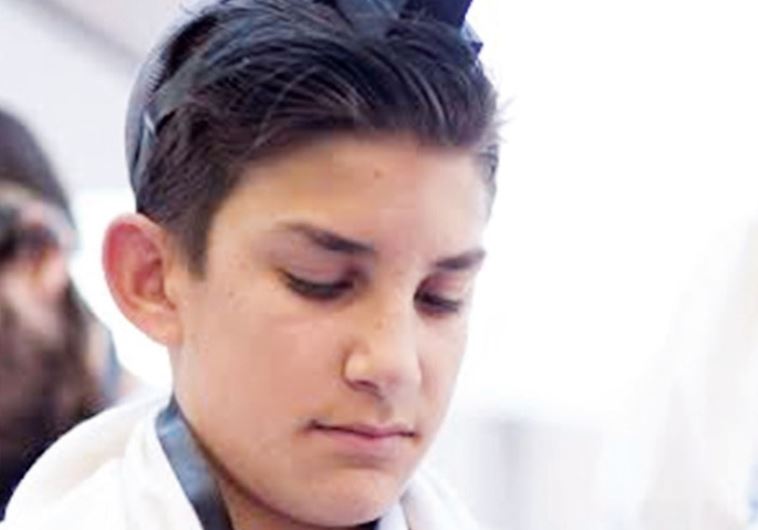A quadruple celebration
It all began approximately a year ago, when the Schuster family, including parents Fred and Karen, began planning for Ilan’s bar mitzva.
 The bar mitzva boy, Ilan Schuster of San Diego, puts on tefillin(photo credit: NITAI SHAANANI – ART PHOTOGRAPHY)
The bar mitzva boy, Ilan Schuster of San Diego, puts on tefillin(photo credit: NITAI SHAANANI – ART PHOTOGRAPHY)